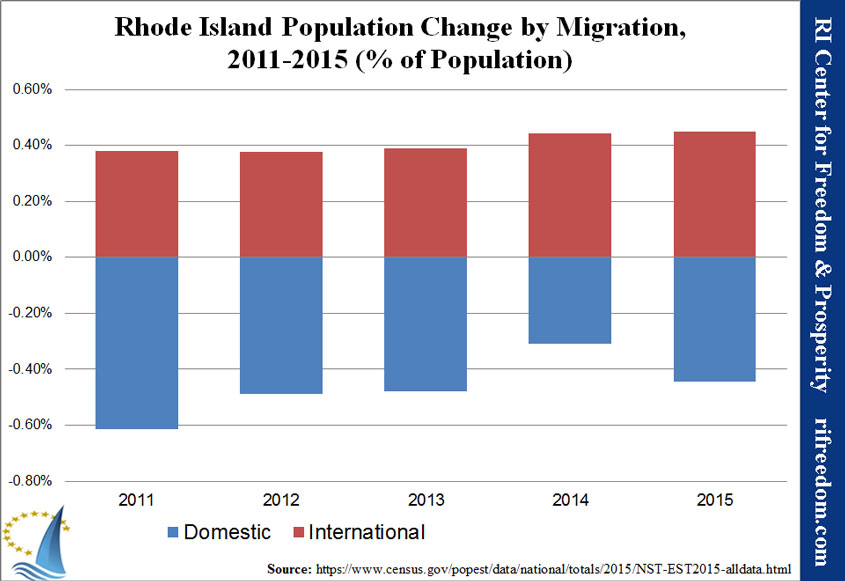Electing Themselves a New Population
Ted Nesi beat me to an initial review of the latest Census estimates showing what changed in states’ populations in 2015, compared with 2014:
Net migration to Rhode Island was slightly positive in 2015, as the net arrival of 4,727 international migrants was nearly offset by the net departure of 4,693 domestic residents. There were also 10,984 births and 9,533 deaths in the state during the 12 months ended July 1.
Focus in on those migrant numbers. What that means is that more people who were in Rhode Island last year left for other states than people in other states chose to take up residence in Rhode Island. When it comes to crossing national borders to and from Rhode Island, the picture is almost exactly the reverse. This is nothing new, although the disparity increased this year. Here are the last five years of data as a percentage of the prior year’s population:
Every year for the past five, Rhode Island has displaced nearly a half-percent of its resident population with people from other countries. That means the total differential is close to a full percent of the population, adding up to five percent in the above chart. Think of it in terms of voters: If everybody in the blue columns could have been expected to vote in a certain way on a particular ballot question and everybody in the red columns votes the other way, each vote counts once but changing or replacing a vote creates a two-vote change.
One begins to see why folks in state government — whatever they may say when the microphones are on — have done precious little to repair the many flaws that leave Rhode Island not competitive with pretty much any state in the nation. Independent-minded Rhode Islanders may leave the state, but officials can opt for policies that replace them with others more likely to require government services. As long as officials can rig the political system to collect money from taxpayers and the federal government, increasing their number of clients remains more important than increasing payers.
In the long run — or even the not-so-long run — the strategy is doomed, but at some point it becomes locked in, because too much of the population has been displaced for it to become plausible that voters will reverse course. Rhode Island may have passed that point already.


